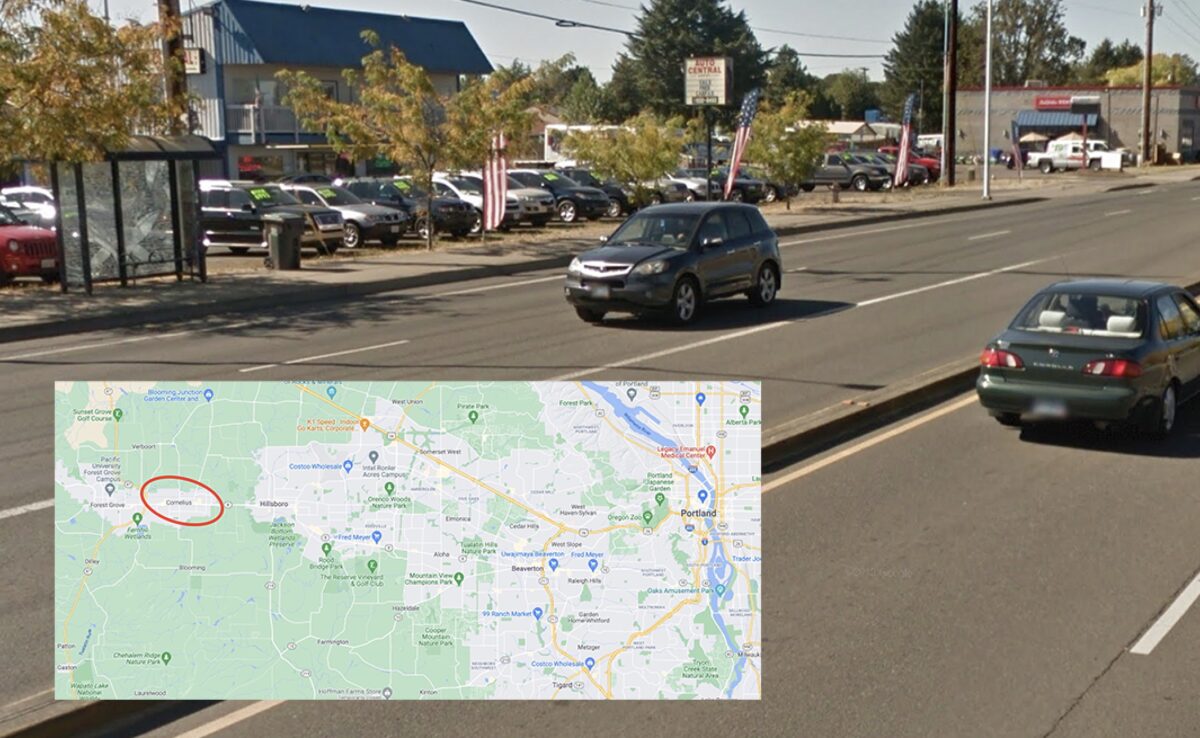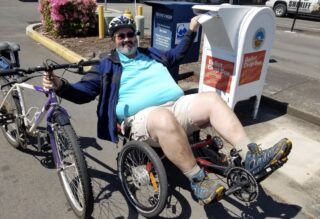
“A transit system that takes four times as long to get to someplace is not a viable or equitable answer.”
— Jeffrey Dalin, mayor of Cornelius
As we reported yesterday, Metro is lining up transportation projects they hope will catch the eye of federal grant programs that have vastly increased in size thanks to President Joe Biden’s Infrastructure Investment and Jobs Act.
When an agency like Metro reveals a prioritized list like that, the choices are not random. They lean on a predetermined set of values and desired outcomes that have been vetted and adopted in our Regional Transportation Plan (RTP), the federally required list of projects and policy directions that sets a 25-year vision for our system. Metro is currently working on an RTP update and staff brought a draft of the Values and Outcomes section to a meeting of their Joint Policy Advisory Committee on Transportation (JPACT) meeting Thursday morning.
Surprising absolutely no one, Racial Equity and Climate Leadership were on top of a list of five focus areas.

(Photo: @DalinMayor on Twitter)
As the meeting turned to discussion from JPACT members, the voice of Cornelius Mayor Jeffrey Dalin stuck with me. Cornelius is a very small city (population 13,000) in Washington County that clings onto Tualatin-Valley Highway between Hillsboro and Forest Grove.
Mayor Dalin spoke up to remind others in the (Zoom) room that “equity” and “climate leadership” looks different beyond the big urban centers. Dalin wanted them to know what equity means from the perspective of his constituents.
As you read his comment below, keep in mind who was hearing it. Dalin spoke right after PBOT Commissioner Jo Ann Hardesty, and TriMet General Manager Sam Desue was also in attendance:
Advertisement
“… I have a 53 to 55% Latino community. We have a longer than average commute and we have a lower than average income. Most households are multi-family or multi-generational. Most of those households who continue to be embattled by ‘climate-smart’, ‘climate-friendly’ [policies] are actually putting in third parking spaces at their house because they have three, four, five or six cars because we do not have another way to get around and do the things we need to do.
… A transit system that takes four times as long to get to someplace is not a viable or equitable answer. If my 4,600 workers that have to leave the city every day, to go somewhere else to work, have to take two to three hours to get to Tualatin, Tigard, Sherwood, and over an hour to get to Portland, maybe more, that’s not equitable… that’s why these folks drive is because there’s no other way. They have multiple jobs. They have to get from one job to another quickly, multiple times.
And I also question the point where we’re so significantly dividing our communities that the only acceptable answer for people of economic challenge is on a bus or on the train. Yet if you have affluence and the ability, you get to have a car and you get to have choices about where you go. That really, really concerns me that we think that’s the only answer. So I think we need to ask those questions and take an equity lens and really look at the answers were proposing. And make sure that we’re not just further driving the divide between our people by the dollar.
Our community doesn’t have the same opportunities that you do in inner-city. When I go to my buddy’s house in Portland, it is a few blocks to a bus. We have one. And it comes every 15 minutes. And a lot of times that bus is already full with people leaving Forest Grove, so they can’t even get on the bus. You can get comments from my councillors about waiting, two and three buses to get on. And lord forbid you’re using a bike to complete your commute. The two spots on the front of the bus are already full for two, three or four buses. So now your making that person wait an hour in the rain in the winter, to bike commute their last mile.
So those are some of the concerns. I think we need to be open and honest about this. I’ve been so upset several times in these meetings by us not talking about the real issues; but I do really want to echo Commissioner Hardesty’s point: BIPOC is not the same everywhere. We do not have the same brush. We’re all in the same boat? No, we’re not even in the same boat, even though we’re all in the same giant storm.
We need to take them into consideration and understand how these RTP [Regional Transportation Plan] plans will affect them. I don’t see anybody from Fairview or Troutdale on here talking, but they’re not dissimilar in their issues. Right? The the outer edges of our [region] are suffering from this very differently.
The one last point I would make… I think we would be remiss not to get out of Portland and have listening sessions with the entire [Metro Council] and commission out in the areas like we’ve done in the past where we went to the Clackamas County Center and listened to the comments from the folks in their community at the point of activity, not just online or sampling a few people here and there. I think we need to get out of downtown and see all the other parts and listen to those comments.
Thank you.”
Perspective is so vital in these conversations. I’m glad Mayor Dalin shared this one.

